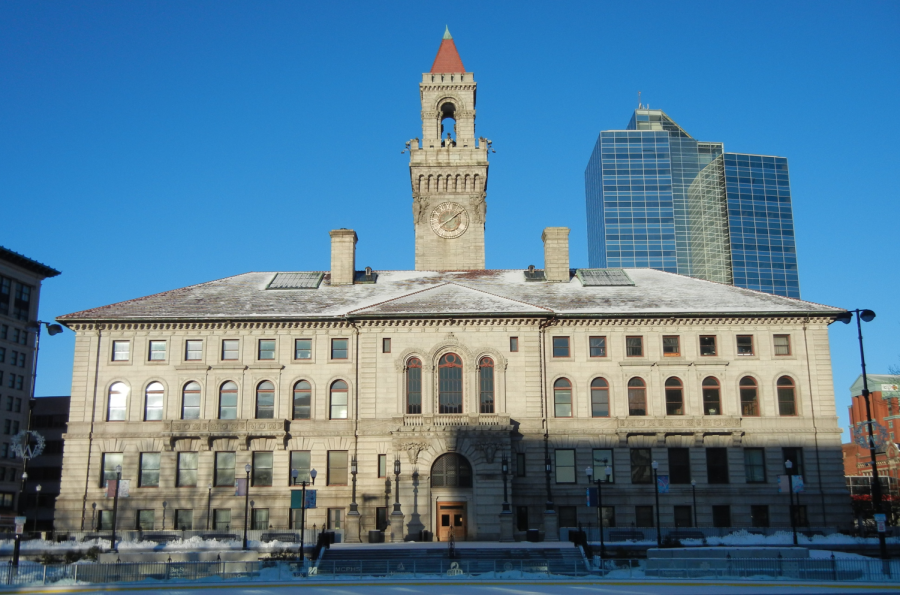Worcester, Massachusetts Voters Go Blue, Breaking Glass Ceilings Statewide
November 14, 2022
Massachusetts Democrats went to the polls in large numbers on Tuesday, voting former Attorney General Maura Healey for governor of the state. Healey is the first female Governor of Massachusetts and first openly lesbian governor in the United States.
Healey and her running mate, Kim Driscoll, additionally made history, as this is the first time in the United States that both the governor and the lieutenant governor of a state will be female.
The Massachusetts governorship has been controlled by Republicans since 1991, apart from the eight years in which Deval Patrick was governor, The Guardian reports.
“I hope tonight shows you that you can be whatever, whoever you want to be,” Healey said at a Tuesday evening victory rally in Boston. “And nothing and no one can get in your way except your own imagination, and that’s not going to happen.”
As Attorney General, Healy made a career on progressive litigation, such as when she challenged the Defense of Marriage Act of 1996, or when she sued ExxonMobil for cloaking their knowledge of the climate crisis from major investors and the public at-large. Healey was also critical of Purdue Pharma, developers of OxyContin, and its owners, the Sackler family, for their connections to the opioid crisis.
According to her campaign website, Healey’s priorities as governor range from climate reform to reproductive freedom and voting rights. As governor, she vows to “increase transparency in the pharmaceutical industry.” The Worcester Telegram reports that all fourteen Massachusetts counties voted with Democratic majorities in favor of Healey.
Massachusetts Attorney General Andrea Campbell and Auditor Diana DiZoglio, also Democrats, were elected with 62.6% and 54.9% of the vote, respectively. Campbell is set to be Massachusetts’s first Black woman to be elected attorney general.
In addition to the multitude of races Massachusetts voters decided on in the midterms, their ballots also contained several proposed amendments in the form of questions. Each question either proposed a change to the current policy or the status quo.
Question 1, also called the “fair share amendment” or the “millionaire’s tax,” would amend the Massachusetts state constitution, adding a 4% tax to those with an income exceeding $1 million. According to a study by Tufts University, despite only applying to 0.6% of households in the state, the tax could raise up to $1.3 billion in funds for the government to use for affordable housing and other community-centered projects in 2023.
A prominent concern from opponents is that because the state Legislature has the final say in where tax money is used, it may not go to education and transportation projects as is advertised. Dan Cence, representative of the Coalition to Stop the Tax Hike Amendment, noted that it may increase taxes on small businesses.
While experts predict that some of the highest earners in the state may move to neighboring states that have flat tax rates as opposed to the new progressive tax, this group is expected to have negligible impact on revenue raised from the tax.
Question 2, also approved by voters, will implement new dental insurance regulations in the state. It requires insurance companies to make their financial data available to state regulators. This is the first such law in the nation.
Question 3, which proposed new regulations for liquor stores, was not passed; liquor sales will not be impacted. Question 4, which is meant to uphold the law allowing immigrants living in the state illegally to obtain a driver’s license, was passed. They will have to meet the standard requirements of passing a road test and showing proof of identity and residency in the state. The law will go into effect in July 2023.
Question 5 is unique in that it is specific to the city of Worcester. Called the Community Preservation Act, this policy sought to add a 1.5% surcharge on property taxes beginning in July 2023. Low-income families and moderate-income senior citizens who are homeowners will remain exempt. The Community Preservation Act passed with 52% of voters approving.
While USA Today reports that Question 5 was one of the most contentious, sparking debates over whether now was the time to tax or if unfavorable economic conditions made it more important than ever to help others, many agreed that the “historic preservation projects, open space acquisition and park improvements, and community housing” are worthy causes.
District 2, which contains the city of Worcester, voted overwhelmingly for Jim McGovern in the U.S House (66.2%) over the Republican candidate Jeffrey Sossa-Paquette (33.8%). They also voted for Democratic candidate Becca Rausch to represent them in the Massachusetts State Senate.
Additionally, Democrat Robyn Kennedy won the race against Independent Lisa Mair for the First Worcester district seat in the Massachusetts State Senate.
Kennedy asserts that her campaign has focused on ”building forward and building to the future and…building within our community.” She noted that creating this stronger future “begins with those who are most marginalized, most left out.”


James Burke ~ Nov 16, 2022 at 9:30 pm
my Glass ceiling is voting for the most qualified Human